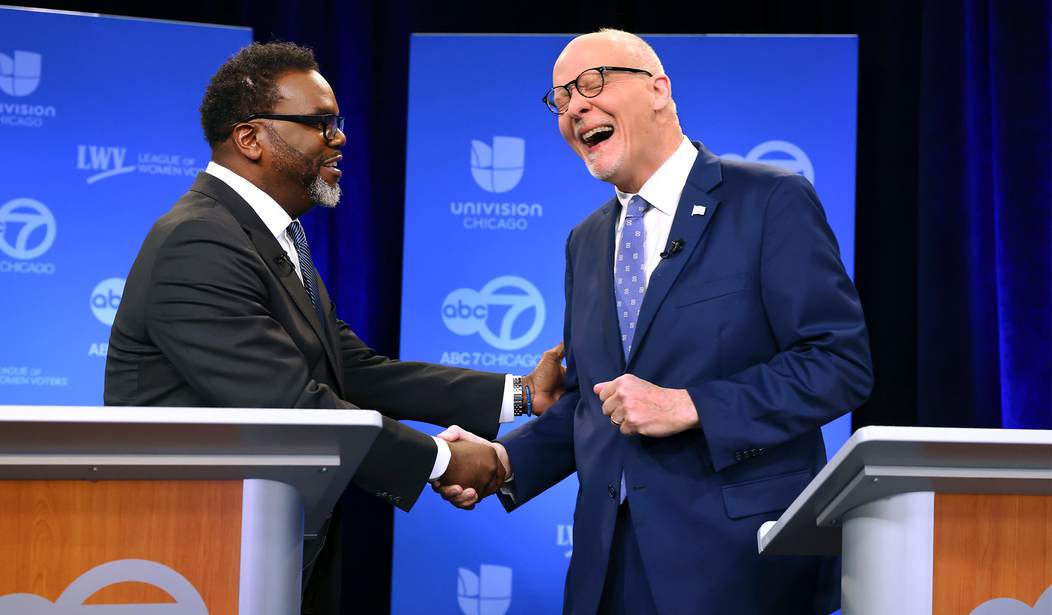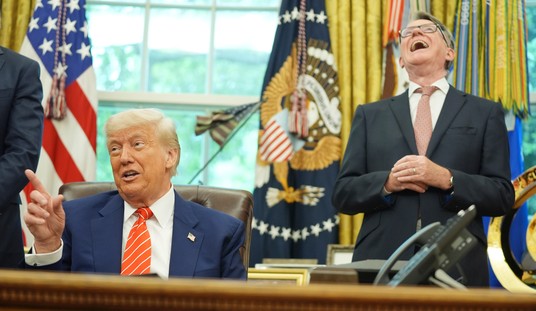The list of problems facing the next mayor of Chicago, who will be elected in a runoff election on April 4, is almost beyond belief. A fiscal hole of between $500 and $600 million, a 12% drop in pension funds for an already stressed pension system, and severe shortfalls in future revenue collections. Tourism and convention business, CTA ridership, and office and retail occupancy have not yet returned to 2019 levels.
Hotel occupancy is only at 85% of pre-COVID levels while subway ridership is at 37%. Bus ridership is slightly better at 60%, and the vacancy rate among downtown office buildings ended last year at an all-time high of 21.4% — far above the 13.8% vacancy rate when the pandemic started, according to Crain’s.
This is a little worse than most big cities. But given that America is facing the fallout from Biden’s economy, the overall economic picture is likely to get much worse before it gets better.
Bad economic times mean less revenue, and that means more trouble for basic city services for everything from mass transit to garbage collection. Chicago’s finances are so precarious they have nothing left to fall back on, hence the worry that some services will have to be cut — or taxes raised dramatically.
Neither option is on the lips of the two candidates. Paul Vallas is a former CEO of the Chicago public schools running on a law and order platform of increasing the number of police and toughening enforcement. Vallas believes there’s already plenty of money to do what has to be done to make the city better.
His opponent, Cook County Commissioner Brandon Johnson, believes there’s plenty of money to be gotten from rich Chicago businessmen and their companies. He plans to use that cash to make the lives of poor people better, except he’s a little fuzzy on the details.
“At a very high level, the central contrast is, with Vallas, there seems to be an underlying assumption that there’s enough money in the system to do what he wants to do,” said University of Chicago professor Justin Marlowe. “With Johnson, there’s not enough money in the system, there needs to be a reconfiguration to generate revenue and make the system more fair.”
Also for our VIPs: Lightfoot’s Fall Could Signal the Beginning of the End for Radical Big City Politics
Both candidates claim they won’t raise property taxes — a pledge that no one believes they can keep.
Ralph Martire, a professor of public policy at Roosevelt University, points out that “Holding the property tax levy flat, when it’s by far and away the biggest revenue source funding this growing pension obligation, just doesn’t seem to me to be a very wise fiscal decision.” The reason for that is that the $1.73 billion property tax gulp funds the city’s already underfunded public pensions. The tax is going to have to rise to keep pace with inflation.
Johnson doesn’t seem to grasp the fundamental fact that you can only soak the rich so much before they pull up stakes and move on.
Some of Johnson’s revenue plans have drawn skepticism: He proposed a “big business head tax” of $4 per employee for certain companies, which his campaign says would generate roughly $20 million, and a “big banks, securities and speculation tax” to raise $100 million annually by charging $1 or $2 per securities trading contract.
The latter proposal would likely need authorization from state legislators, making it a long shot. Vallas counters it would drive away business.
Paula Worthington, a senior lecturer at the University of Chicago and former senior economist at the White House Council of Economic Advisers, warned that “capital is mobile,” particularly in a “Zoom or remote world.”
Aldermen have previously heard criticism of efforts to implement a securities tax. At a 2020 hearing about a potential “LaSalle Street tax,” Chicago Mercantile Exchange Group CEO Terry Duffy warned aldermen of the ease at which they could pack up.
“We are no longer four walls with a trading floor,” and other states had offered them incentives to move, Duffy said.
While head tax proposals are “typically not super onerous,” Worthington said it could create problems.
“People are mobile too,” Worthington said. “If you have a big corporation and it’s anywhere near the margin of being subject to a head tax, it may change its plans.”
Consider that three Fortune 500 businesses moved out of Chicago in 2022 alone. Since it’s unlikely that either Vallas or Johnson will make the economic environment in Chicago any more conducive to growth, it probably won’t matter very much who ends up winning a seat on the Titanic.










